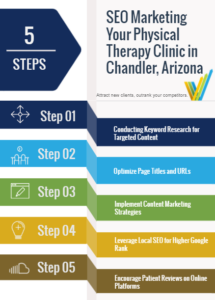What should you be doing with your SEO for 2015? Find out more details in part 2 of this series.
In part 1 of this 2-part series, I took a look at some of the top factors affecting search rankings in 2015.
Links are still king. And content, shockingly, didn’t seem to get as much attention as it deserves.
But, the report goes into such detail that a single blog post just isn’t enough.
So take a look at some more of the things you should be doing here as we close out 2015:
- Page-Level Factors that Don’t Include Keywords
Like your overall domain, pages tend to rank higher as they have more links pointing to them. That includes your own internal links and external links from other sites.
Schema.org markup, which doesn’t get a lot of attention, also has a slight positive impact on rankings. Basically, it’s microdata that helps search engines understand your content.
- Domain-Level Factors
.ORG extensions generally get slightly better treatment than .COM extensions. However, the difference isn’t enough to warrant registering your domain name with .ORG.
You’ll also hear things out there like you should have as short of a domain name as possible. This study found a weak relationship between domain name length and search rankings (although there was a slightly positive one).
- What about NoFollow Links? Should You Have Them?
The Moz study didn’t check these as an individual factor. However, they did include them as part of the factor that examined internal and external links at both the page and domain levels.
So they’re part of a healthy link profile.
- And You Certainly Can’t Forget about Anchor Text
Anchor text is one of the biggest changes in SEO over the years. It’s the blue text you actually see on a link. 5 years ago, it was smart to point links with anchor text that exactly matched your keywords to your website.
Today, do that with just a handful of links and you put yourself at high risk for a penalty.
That said, this is how the report concluded your anchor text should break down:
- Partially matches your keywords and comes from many external domains
- Exactly matches your keywords and comes from an array of other domains (but do so sparingly)
- Partially matches your keywords and comes from many different external pages
- Exactly matches your keywords and comes from many different pages (again do so sparingly)
- Engagement Metrics that Affect Your Rankings
You’ve probably heard bounce rate, the number of people that visit just one page on your website and leave, affects your search rankings.
Well, it does. But not that much. It has a low correlation with search rankings.
With a nearly two times as strong relationship, pageviews, time on site, and monthly direct visits likely affect your rankings much more than bounce rate.
“Direct” visits include people who access your website by bookmark, typing in your URL in their browser, clicking a link from a social media app for mobile, using a shortened URL, clicking a link from a MS office document, or clicking an e-mail link (depending on the provider).
Regardless of the case, you can be confident “direct traffic” is highly interested in your website.
SEO is All About Building a Great Site for Your Users
At the end of the day, Google wants websites that your users want. SEO will change, often too fast to keep up with.
But if you focus on constantly improving user experience, you’re guaranteed to do well in search now and for years in the future.






